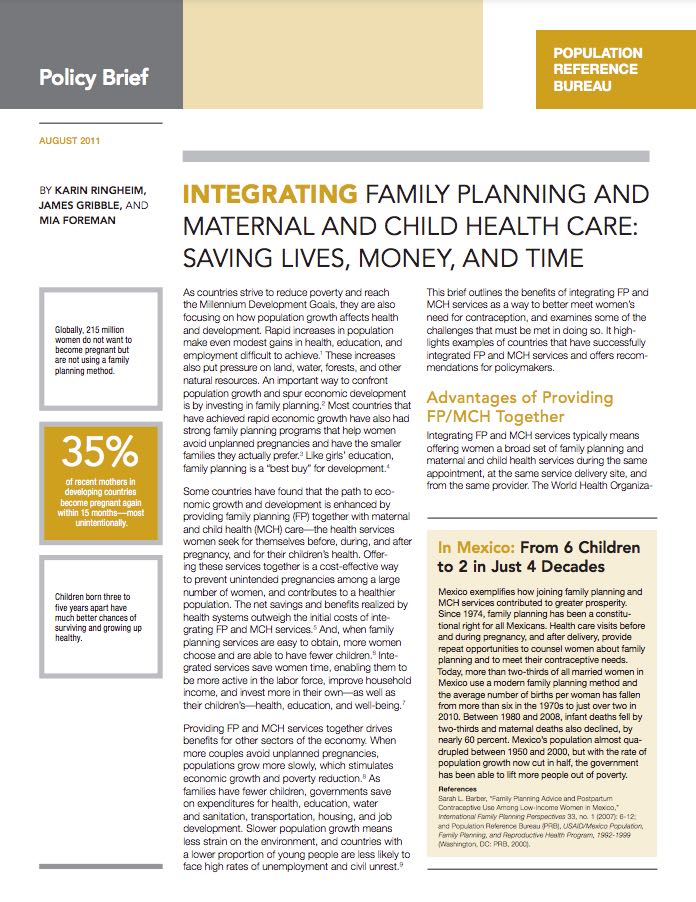
Integrating Family Planning and Maternal and Child Health Care: Saving Lives, Money, and Time
(July 2011) As countries strive to reduce poverty and reach the Millennium Development Goals, they are also focusing on how population growth affects health and development. Rapid population growth makes even modest gains in health, education, and employment difficult to achieve. It also puts pressure on land, water, forests, and other natural resources. An important way to confront population growth and spur economic development is by investing in family planning. Most countries that have achieved rapid economic growth have also had strong family planning programs that help women avoid unplanned pregnancies and have the smaller families they actually prefer. Like girls’ education, family planning is definitely a “best buy” for development.
Some countries have found that the path to economic growth and development is enhanced by providing family planning (FP) together with maternal and child health (MCH) care—the health services women seek for themselves before, during, and after pregnancy, and for their children’s health. Offering these services together is a cost-effective way to prevent unintended pregnancies among a large number of women, and contributes to a healthier population. Although there are initial costs to offering FP and MCH services together, integrated services result in net savings and benefits for health systems. And, when family planning services are easy to obtain, more women choose and are able to have fewer children. Integrated services save women time, enabling them to be more active in the labor force, improve household income, and invest more in their own—as well as their children’s—health, education, and well-being.
This PRB policy brief outlines the benefits of integrating FP and MCH services as a way to better meet women’s need for contraception, and examines some of the challenges that must be met in doing so. It highlights examples of countries that have successfully integrated FP and MCH services and offers recommendations for committed policymakers.
Karin Ringheim is senior policy adviser in International Programs at PRB. James Gribble is vice president of International Programs at PRB. Mia Foreman is policy analyst in International Programs at PRB.

 ">
">